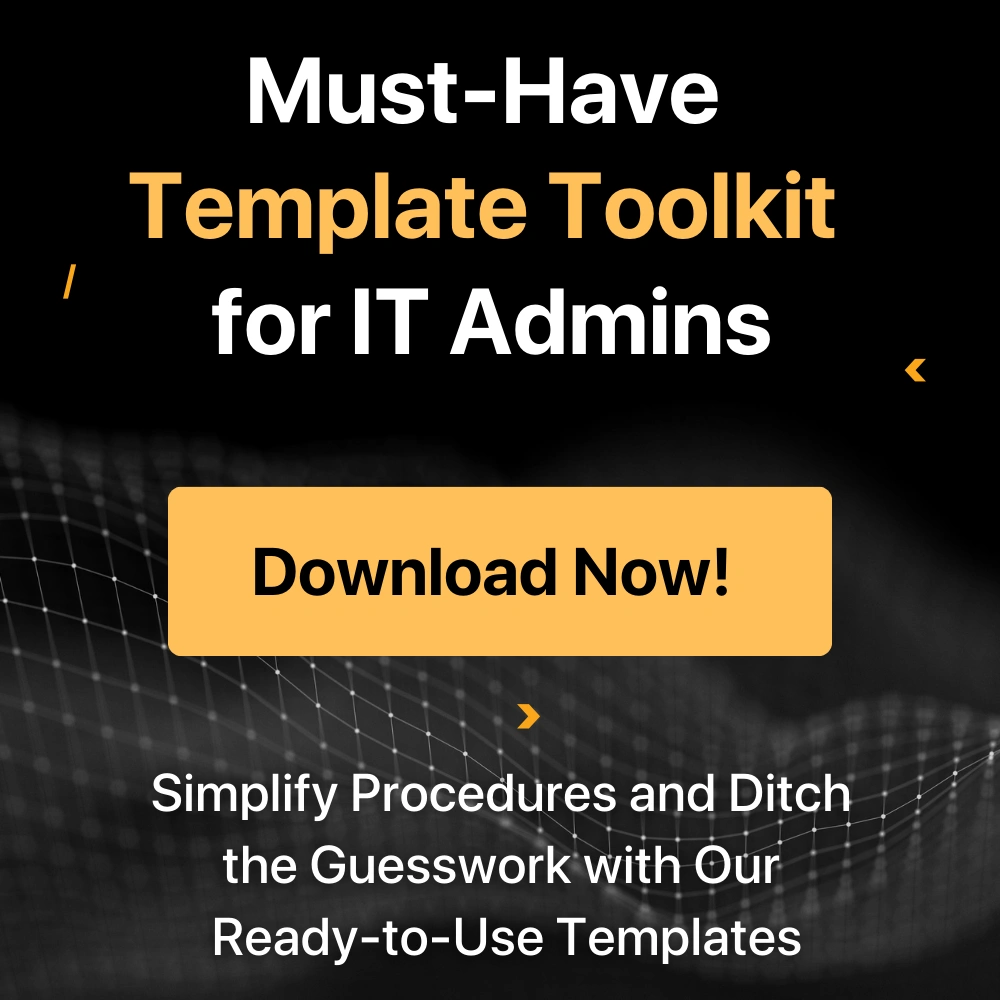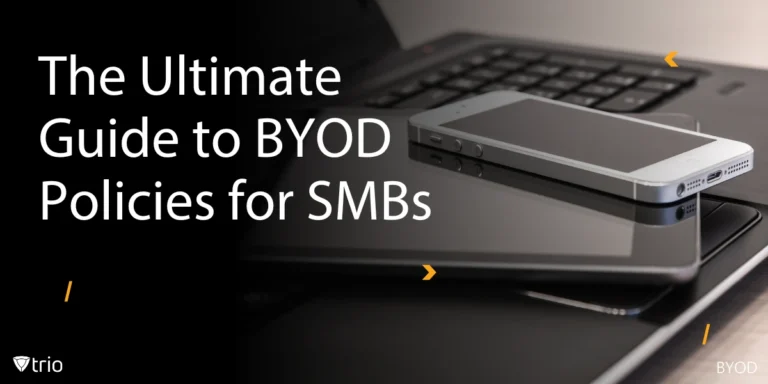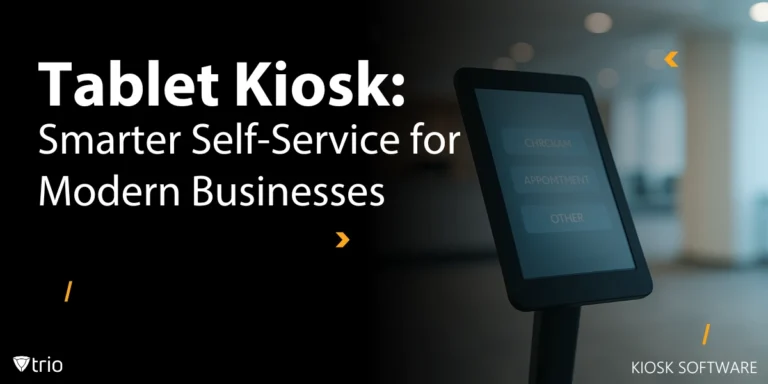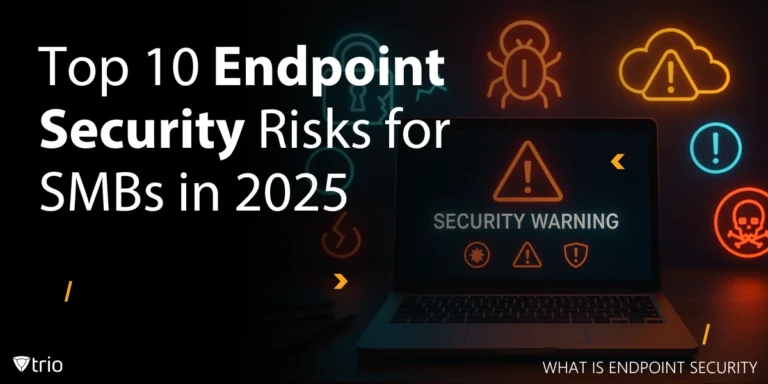The role of knowledge management (KM) is the collection, organization, and dissemination of information within organizations. In the rapidly evolving tech and mobile sectors, KM plays a pivotal role. Efficient organizational KM systems ensure that valuable shared information is readily available, preventing employees from wasting time searching for data. This efficiency is especially critical in mobile device management (MDM), where up-to-date knowledge underpins operational success and innovation. By fostering a culture of shared information, organizations can streamline processes, enhance decision-making, and maintain a competitive edge. This synergy between KM and MDM not only propels companies forward but also solidifies their standing in the tech industry.
Why Knowledge Management Is Important
Knowledge Management (KM) in organization is not a monolith but a complex, multifaceted process. It involves the meticulous gathering, organizing, and sharing of a company's collective wisdom, including the implicit knowledge gained from the on-the-job experience. The importance of KM is to ensure that this treasure trove of insights is not just stored but actively disseminated and applied. This dynamic KM process utilizes a plethora of tools, from document and content management systems to intranets and data warehouses, ensuring that knowledge is both easily accessible and actionable.
The KM Compass
At the heart of KM lies its ability to empower informed decisions. By harnessing collective knowledge, organizations can navigate the complexities of today's technological challenges more effectively. KM ensures data loss prevention, enhances asset management, and, importantly, underpins robust decision-making frameworks.
The Ripple Effect of KM
The significance of KM stretches beyond just hoarding information; it's about leveraging this collective knowledge to refine operational efficiency and decision-making. For instance, an effectively implemented KM system can drastically cut down the time employees spend hunting for information, thereby boosting productivity by upwards of 20%. In an age where decisions are becoming increasingly complex, having a reliable repository of knowledge ensures that choices are not just made but are made well, backed by the most relevant and up-to-date information.
Advantages of Knowledge Management
Beyond the operational benefits, KM acts as a strategic asset, setting companies apart from their competition. The unique collection of insights and expertise within your KM system is a vault of competitive advantage, not easily replicated or accessed by rivals. This treasure of information improves employees’ performance, fostering a culture of autonomy and confidence. As confidence grows, so does the likelihood of making accurate decisions, with studies showing a direct correlation between confidence and decision-making efficacy.
Key Strategies for Effective Knowledge Management
The strategies outlined below emphasize the importance of leveraging technology to enhance the efficiency of knowledge management. By fostering a culture of continuous learning and sharing, organizations can ensure that their approach to mobile device management is both proactive and adaptive, keeping pace with the rapid evolution of mobile technology.
Cultivating and Harnessing Knowledge
In the realm of Mobile Device Management (MDM), Knowledge Creation and Acquisition is pivotal. Innovations and advancements in technology, particularly AI, are instrumental in streamlining the acquisition of knowledge. These technologies enhance the efficiency and effectiveness of managing mobile devices by automating tasks that were traditionally manual, leading to a richer, more accurate repository of knowledge. The application of AI can transform how devices are managed, by predicting issues and suggesting solutions based on historical data.
Storing and Organizing Knowledge
Knowledge Storage and Organization focuses on systematically categorizing and maintaining databases that store critical information about devices, their configurations, security protocols, and user policies. Utilizing a structured knowledge management framework ensures that information is easily retrievable and up-to-date. This organized approach aids in quickly addressing device management queries and issues, facilitating better decision-making and operational efficiency.

Disseminating Knowledge Widely
For Knowledge Sharing and Distribution, it's essential to have strategies in place that guarantee knowledge is not only accessible but shared widely across the organization. This involves adopting tools and platforms that support the hybrid work model, making crucial information about device management available to all relevant team members, regardless of their location. Empowering employees with the right information at the right time encourages a culture of self-service and reduces dependency on IT support for routine inquiries.
Overcoming KM Challenges
Through strategic planning and the adoption of sophisticated KM tools, organizations can transform challenges into opportunities for growth and innovation, ultimately securing a competitive advantage in the fast-paced digital world.
Obstacles on the Path
In the landscape of Knowledge Management (KM), three formidable challenges often stand tall: information silos, ensuring data security, and keeping pace with rapid technological evolution. These hurdles can stymie even the most robust KM initiatives, making the knowledge less accessible and more vulnerable.
Dismantling Information Silos
The first hurdle, information silos, restricts the free flow of knowledge across an organization. Information silos are organizational barriers that prevent the sharing and flow of information between departments or groups within an organization, often leading to inefficiency and a lack of cohesion. This compartmentalization hampers collaboration and innovation. To break down these barriers, fostering a culture of knowledge sharing is paramount. Encouraging employees and leadership to actively engage in using and contributing to KM systems can bridge these divides.
Fortifying Data Security
Securing sensitive knowledge while making it accessible is another critical challenge. In the age of information, leveraging secure collaboration tools that safeguard data without compromising ease of access is essential. Tools like employee intranets, knowledge base software, and internal wikis not only centralize knowledge but also offer layers of security to protect it.
Evolving with Technology
Lastly, the rapid pace of technological change demands constant vigilance and adaptability within KM strategies. A comprehensive KM system should not only accommodate current technological standards but also be flexible enough to integrate future advancements. This includes embracing digital adoption platforms (DAPs) that seamlessly guide employees through new tools and processes, ensuring knowledge remains relevant and accessible.
Strategies for a Resilient KM System
Building a resilient KM system that overcomes these challenges involves a multi-faceted approach. It starts with fostering a culture that values shared knowledge, followed by implementing tools that secure and simplify access to this knowledge. Moreover, adopting a forward-looking approach that anticipates and adapts to technological advancements can ensure your KM system remains effective and relevant.
Harnessing Knowledge Management for MDM Excellence
KM, when effectively integrated with MDM solutions, not only streamlines device management but also fortifies security, ensures compliance, and enhances problem-solving capabilities, offering a tangible competitive advantage.
Transforming Challenges into Opportunities
In the realm of Mobile Device Management (MDM), a telecommunications giant in Qatar successfully managed over 2,500 point-of-sale devices across its widespread retail outlets. This achievement underscores the profound impact that strategic knowledge management can have on overcoming complex operational challenges, such as enhancing device security, ensuring strict compliance with international standards, and facilitating efficient remote support for a dispersed workforce.
Ensuring Compliance and Security
Central to this success story was the company's ability to meet stringent compliance requirements while significantly bolstering the security of its devices. This not only protected sensitive customer data but also aligned with global security standards, showcasing the pivotal role of knowledge-driven strategies in achieving high levels of security and compliance in MDM.
Optimizing Device Management
The company's approach to problem-solving and device optimization is particularly noteworthy. By implementing robust policies and remote management capabilities, they were able to swiftly address device issues, reduce downtime, and maintain operational efficiency. This strategic application of knowledge management principles in device management processes exemplifies how companies can improve efficiency and security in a technologically dependent environment.
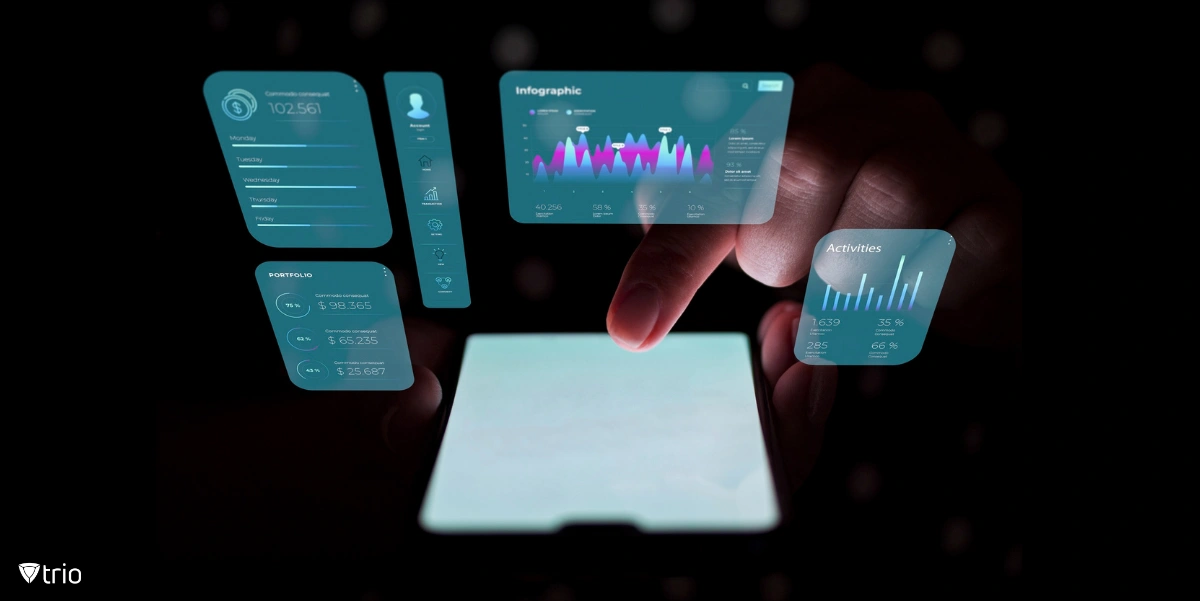
Lessons Learned
The experience gleaned from this case provides valuable insights into the critical importance of selecting tools that facilitate easy integration, offer comprehensive support, and enable effective training programs. These elements are crucial for enhancing the management of mobile devices across an organization, underscoring the importance of a knowledge-based approach to MDM.
This narrative demonstrates the tangible benefits of integrating knowledge management with MDM strategies to streamline operations, fortify security, and ensure compliance, thereby delivering a competitive edge in the fast-paced telecommunications sector.
Implementing KM Solutions: First Steps
To integrate KM into your MDM strategy, begin by clearly defining your program's objectives, focusing on solving business issues and driving value. Leadership buy-in is crucial, as KM implementation requires a cultural shift towards knowledge sharing. Establishing a comprehensive knowledge management program involves a phased approach, starting with setting objectives, preparing for change, and defining high-level processes. This foundation supports device provisioning and optimizes MDM effectiveness by ensuring everyone is aligned and informed.
- Secure Leadership Buy-In: The journey begins with leadership support. Convincing top management of the value KM brings to MDM is crucial. Their endorsement can drive organizational change.
- Cultural Shift: Transforming the workplace culture to prioritize knowledge sharing is essential. This mindset shift lays the groundwork for a successful KM program.
- Define Objectives: Clearly outline what you aim to achieve with your KM initiative within your MDM strategy. Objectives might include improved device provisioning efficiency or enhanced data security.
- Select the Right Tools: The choice of KM tools is pivotal. Opt for solutions that seamlessly integrate with your MDM systems, ensuring that knowledge flows unimpeded across platforms.
- Implementing KM Solutions: With leadership on board, a knowledge-centric culture, clear objectives, and the right tools in hand, you're set to integrate KM practices into your MDM strategy effectively. This strategic approach promises to enhance operational efficiency, bolster security, and foster a collaborative environment conducive to continuous improvement.
Transform Your MDM with Trio
Dive into the future of mobile device management with Trio. Our solutions seamlessly integrate knowledge management practices, fostering an organizational culture that thrives on shared wisdom and innovation. Experience the difference firsthand – get a free demo today and start your journey towards a smarter, more connected digital workspace.
Conclusion: Unlocking Potential
Embrace the power of knowledge management to revolutionize your mobile device management. Starting small can lead to significant long-term enhancements, making every step towards integrating KM practices a stride towards operational excellence. Let Trio guide you in this transformative journey.
Get Ahead of the Curve
Every organization today needs a solution to automate time-consuming tasks and strengthen security.
Without the right tools, manual processes drain resources and leave gaps in protection. Trio MDM is designed to solve this problem, automating key tasks, boosting security, and ensuring compliance with ease.
Don't let inefficiencies hold you back. Learn how Trio MDM can revolutionize your IT operations or request a free trial today!

